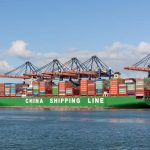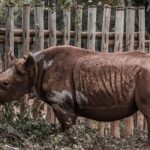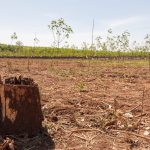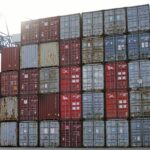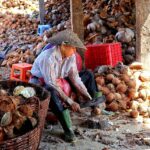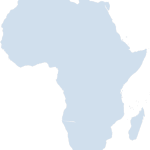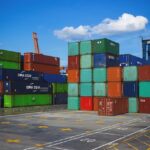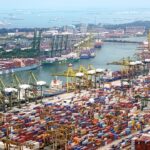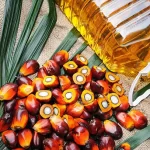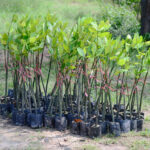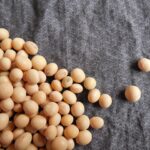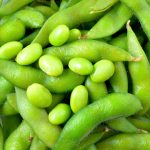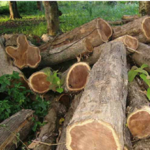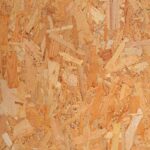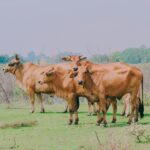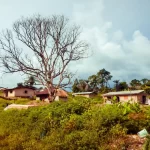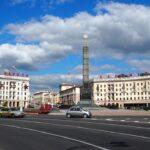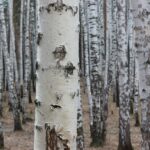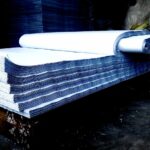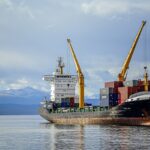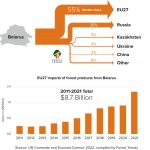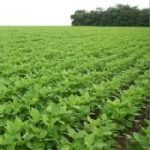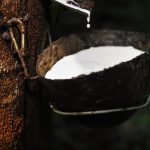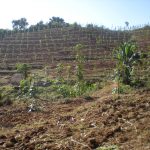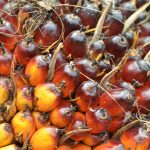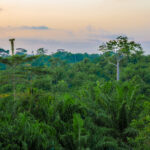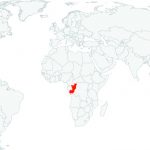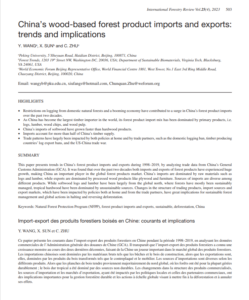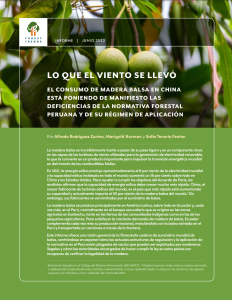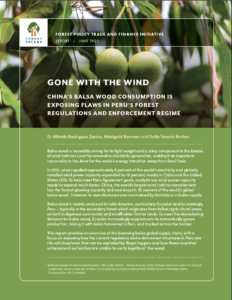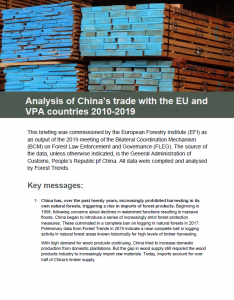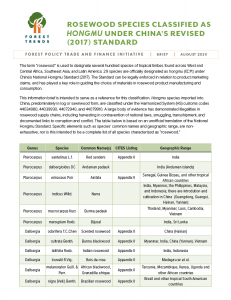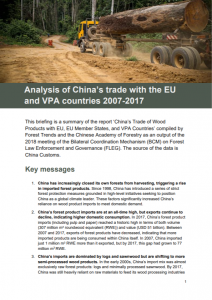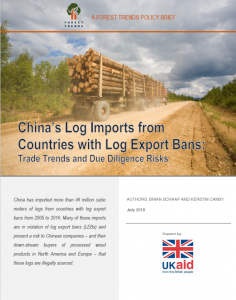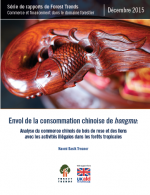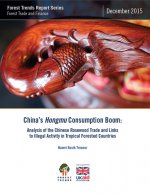
- China’s domestic supply of industrial wood has failed to keep up with its industrial manufacturing capacity. To meet this deficit, China relies on significant volumes of wood product imports. Logging in China’s natural forests is prohibited, and domestic plantation-grown raw material (primarily poplar, eucalyptus, masson pine, and Chinese fir) are generally considered low-risk.
- Many similar temperate natural forest species are found in the Russian Far East, North America (U.S. and Canada), northern / eastern Europe and northern China, such as oak. There is a demonstrated risk of laundering high-risk Russian Far East and Ukrainian species and falsely declaring them as having been harvested in northern Europe, North America or even China (pre-2017).
- More than half of the timber used in Chinese-made wood products has been imported from other countries – both from high- and low-risk sources.
- China does not currently require traceability of wood products through its supply chain. The size and nature of the processing industry means that timber is regularly mixed from multiple sources with no obligation to trace back along the supply chain. This may change soon pending the forthcoming Implementing Regulations for China’s 2019 Forest Law, or further National Forest and Grasslands Administration (NFGA) departmental rules based on the 2019 Forest Law.
- Enforcement actions in the European Union (EU) and U.S. have demonstrated the risk of illegal timber, laundering and species mis-declaration on products manufactured in China.
Read more by downloading the China Timber Legality Risk Dashboard here.
More than 173,000 cubic metres of logs were traded from the United States to China in December, making China the United States second-most important export market for logs and the United States China’s third-most important market. That is according to new data provided by China Customs, revealing that trade in US-originating sawlog jumped more than 40% from December 2023.
China left off hardwood and softwood logs in its ongoing tit-for-tat trade war with President Trump, revealing that from today, 10 February 2025, China will impose a 15% border tax on imports of US coal and liquefied natural gas products – along with a 10% tariff on American crude oil, agricultural machinery and large-engine cars, which comes in direct response to Trump’s decision to impose a 10% tariff on a wide range of Chinese imports – including timber furniture.
More than $360 million of Russian birch entered the United States via Indonesia and Vietnam last year.
In 2024, the United States imported over $62 million of birch plywood from Russia,” according to a letter from the American Hardwoods Export Council (AHEC). “However, these direct imports from Russia pale compared to the nearly $200 million of birch plywood imported from Vietnam and the nearly $160 million imported from Indonesia.”
Operation Thunder 2024 (11 November – 6 December) brought together police, customs, border control, forestry and wildlife officials from 138 countries and regions. Authorities arrested 365 suspects and identified six transnational criminal networks suspected of trafficking animals and plants protected by the Convention on International Trade in Endangered Species of Wild Fauna and Flora (CITES).
Timber cases represent the most significant seizures, primarily occurring in sea cargo container shipments, while most other seizures took place at airports and mail processing hubs. More than 49,000 pieces, 214.9 tonnes, or 1340 cubic meters were seized. Significant seizures included:
- Indonesia: 134 tonnes of timber headed to Asia via ocean freight.
- Kenya: 41 tonnes of exotic timber headed to Asia via ocean freight.
The participation of numerous countries contributed to the success of intelligence efforts in the operations, targeting high-value suspects. Authorities investigated online activities and found suspects using multiple profiles and linked accounts across social media platforms and marketplaces to expand their reach.
The investigation shows that Russian plywood is being smuggled en masse into numerous EU member states and that efforts by authorities to clamp down have been woefully inadequate. As a result, illegal blood-stained birch worth over 1.5 billion euros has been sold in Europe since sanctions took effect.
Piecing together information from insider leaks, trade documents and clandestine calls, we reveal the actorsThe investigation shows that Russian plywood is being smuggled en masse into numerous EU member states and that efforts by authorities to clamp down have been woefully inadequate. As a result, illegal blood-stained birch worth over 1.5 billion euros has been sold in Europe since sanctions took effect.
Piecing together information from insider leaks, trade documents and clandestine calls, we reveal the actors at every stage of the supply chain – from the manufacturing giants in Russia, through to the firms laundering their products in China, Kazakhstan and Turkey, and their customers in the EU.
at every stage of the supply chain – from the manufacturing giants in Russia, through to the firms laundering their products in China, Kazakhstan and Turkey, and their customers in the EU.
North America is the major beneficiary of the EU’s Green New Deal, with huge shipments of imported lumber to replace European-sawn wood and panels that will be limited under the LULUCF Regulation.
For over 40 years, Senegal’s Casamance region – a strip south of The Gambia – has been the primary source of illegally traded rosewood. The region has been embroiled in an insurgency between the separatist Movement of Democratic Forces of Casamance and Senegal’s government. The separatists rely on the illicit rosewood trade to fund their insurgency.
Also published here: Illegal logging cuts deep into The Gambia’s ecology and economy | ENACT Africa
The European Commission will impose a (provincial) 42.3-to-49.2% anti-dumping duty on all Chinese parquetry entering the European Union after an investigation found that huge volumes of multilayered wood flooring were being dumped at significant margins into the European market.
Wood Central understands that the new duty will come into effect in a matter of days following a formal complaint filed by the European Parquet Federation (FEP) of producers from EU Member States where parquet is produced. According to the FEP, “these measures are expected to provide much-needed relief to the EU parquet industry,” which has suffered the “injurious effects of Chinese imports for a number of years.”
Already, imports of parquet products from China have been subject to customs registration since October 2024, with a view to the possible application of anti-dumping measures with retroactive effects.
Judge Lisa W Wang from the US Court of International Trade found that Chinese traders are using Malaysia to circumvent antidumping and countervailing duties on wooden furniture, vanities and components.
Judge Wang’s opinion comes after the US Department of Commerce – in July – upheld a ruling confirming that products coming from Malaysia and Vietnam entering the US must be covered by an antidumping and countervailing duty (or AD/CVD), with the department now looking to introduce a new certification regime to ensure compliance with rulings.
More than US $10 billion worth of timber is traded between the United States and China every year. China’s economy is still grappling with subdued consumer spending, a lingering property crisis, and deflation risks. Despite a projected growth rate of 5% this year, renewed trade confrontations could jeopardise its export-driven recovery, forcing Beijing to depend on domestic economic measures to sustain growth. As a result, the Chinese Politburo has indicated a shift from its “prudent” monetary stance to a “moderately loose” approach, signalling potential reductions in interest rates, bank reserve requirements, and enhanced central bank funding.
President-elect Trump plans to introduce a 60% tariff on all goods traded into the United States from China—a move that would have major implications for the global supply chain of timber, pulp, and paper products. As it stands, US $10 billion worth of wood is traded between the US and China every year, up from $7 billion a decade ago.
More than 90% of Russian lumber is traded to China; now, a new tariff—five times higher than those imposed on the EU—has made importing Chinese furniture parts non-competitive.
As it stands, China is responsible for taking more than 90% of all lumber produced by Russia (accounting for more than 63% of all lumber imported into China every year). Russia’s timber giants are now leaning on Chinese know-how to refurbish huge volumes of plant and equipment.
Billionaire Yevtushenkov’s Segezha Group continues to destroy huge volumes of ancient forests in Karelia as part of a growing trade with China and India.
The Segezha Group, controlled by the family of billionaire Vladimir Yevtushenkov, was, from the 1990s until mid-2022, subject to full FSC certification. This meant that the timber giant agreed to a moratorium to protect millions of hectares of ecologically rich Karelia forests near the Finnish border in exchange for selling timber into “ecologically sensitive” EU markets. “Between June and November 2022, Segezha Group opted out of the logging moratorium in ecologically valuable forests across Russia: from Karelia to Komi, Krasnoyarsk, Irkutsk, and Arkhangelsk,” Vox Europe said last year. “According to World Wildlife Fund, the total forested area Segezha withdrew from protection and is now allowed to log is 1.5 million hectares (3.7 million acres).”
Results of the Australia’s Department of Agriculture, Fisheries and Forestry’s (DAFF’s) testing trial on timber species and harvest origins has clearly demonstrated the need for the Albanese Government’s tougher illegal logging laws with some alarming results from the study, Chief Executive Officer of the Australian Forest Products Association, Diana Hallam said today.
The recently completed DAFF trial tested 146 timber products and 39 distinct species using different scientific methods including DNA, stable isotope, trace element, wood fibre and wood anatomy analysis. A quarter of the tested products were found to be inconsistent with declared species, origin, or both. Product testing of laminated veneer lumber (LVL) product showed 80 per cent originating in China and 20 per cent from Russia, with the Russia component not declared.
China is among the leading five consumers of Vietnamese wood and wood products and imports, accounting for 10% and 12% of Vietnam’s total wood export value. Available figures from the Vietnam Timber and Forest Products Association show local businesses are shipping more than US $14 billion worth of wood and wood products abroad, with US $1.49 billion going to China.
China is Vietnam’s largest trading partner and a vital source of imports for its manufacturing sector. The two countries are already connected through a system of highways and two old railway lines that need upgrading on the Vietnamese side. One of the planned high-speed lines would run from Vietnam’s port cities of Haiphong and Quang Ninh through Hanoi to Lao Cai province, which borders China’s Yunan province. The other would run from Hanoi to Lang Son province, which borders China’s Guangxi region, passing through an area densely populated with global manufacturing facilities, including some owned by Chinese investors.
In order to construct their wind turbine blades, energy giants in the U.S., such as GE Vernova, and leading manufacturers in China, like Goldwind (金风科技) and Mingyang (明阳风电), appear to have relied for years on balsa wood sources that include timber stolen from protected forests and the exploitation of Indigenous communities in the Amazon. This report reportedly connects the dots between deforestation, human rights violations, and some of the world’s leading wind turbine blade manufacturers.
A year-long Mongabay investigation shows that one of Cambodia’s most notorious logging companies likely illegally exported rare tree species to Vietnam and China for years.
Mongabay found evidence Angkor Plywood has been illegally logging timber from protected areas and violating various laws by exporting sawn logs — and doing all this with impunity, in part thanks to its well-connected founders.
Shipping records from 2021-2023 show Angkor Plywood exported a type of timber coveted in the furniture trade from a species it should never have been allowed to log or trade, according to a government source.
On 11 October 2024, the EU opened an anti-dumping investigation concerning EU imports of hardwood plywood, originating in the People’s Republic of China, which could lead to substantial anti-dumping duties on future imports.
Tariffs are already in place on birch plywood imports from Kazakhstan and Turkey as they included Russian content. Other countries such as Morocco, the US, and South Korea have tariffs on Chinese wood imports.
Also reported here: Why Plywood is the New Front in China’s Budding Trade War with the EU | Wood Central
.
Under Rudolph Merab’s leadership, the Forestry Development Authority (FDA) approved the export of 797 logs, valued at US$923,441, despite knowing that over half of the timber was illegally harvested. This shipment, owned by West Water Group (Liberia) Inc., and transported by a ship flying under the Malaysian flag,was one of Merab’s first actions after his February appointment. The logs were bound for China, with Wenzhou Timber Group Co. Ltd purchasing them. Merab had a controversial history, with his logging companies previously found guilty of illegal activities, and ties to former President Charles Taylor. Merab was accused of exploiting Liberia’s forests to finance Taylor’s war.
Speaking at the APEC Haus, a controversial conference centre built for the 2018 Asia-Pacific Economic Co-operation Forum, Pope Francis challenged PNG’s top foreign donors (namely China and Australia) to do more to end poverty and escalating violence in the region.
In addition, the Pope said that natural resources (including logging) should be developed in a “sustainable manner” that “improves the well-being of all, excluding nobody, through … international co-operation, mutual respect and agreements beneficial to all parties.”
According to China Customs, China’s imports of softwood logs have contracted 10% for the first six months of 2024 to 15 million cubic metres. In addition, the value of logs has also been in freefall, dropping 17% to $2 billion, from $141.45 per cubic metre to just $130 per cubic metre.
According to data from China Customs, Russia now accounts for 45% of all lumber imports – with Thailand, China’s second-largest importer, now responsible for more than 18% of lumber traded into the world’s largest forest economy.
China’s economic growth has slowed to 4.75%, compared to the rapid annual growth rate of 7% and 8% during the 2010s heyday.
According to the Indian Centre for Science and Environment, the country’s 2022 demand for timber was 63 million cubic metres—30 million cubic metres for domestic production and 33 million cubic metres from imported sources.
Uruguay is India’s top market for sawlog, with India’s Ministry of Commerce and Industry reporting that Uruguyans account for more than 20% of total trade for the first six months of 2024 (487,700 cubic metres) ahead of Australia (14.4% or 347,600 cubic metres), Ecuador (12.1% or 293,300 cubic metres), Argentina (9.1% or 213,700 cubic metres) and the United States (7.6% or 193,000 cubic metres).
India has emerged as one of the United States’ most important export markets, with 116,000 cubic metres of softwood lumber shipped from the West Coast to India last year alone. Already its fastest-growing hardwood market, the US is capitalising on India’s construction industry and, in the process, making up for a drop in Chinese demand—with total lumber exports almost tripling for the first six months of 2024 over last year.
While import volumes remain lower in 2024 compared to 2023, India is competing with China to become the world’s largest consumer market for structural timbers. The Modi Government is grappling with a 19 million-unit housing shortage, which will double over the next five years.
Fuelling India’s demand for roundwood is a decision made in 2020 to reverse a 27-year ban on using timber in public buildings.
Forestry activities in Cameroon are expected to decline between July and September 2024 due to decreased demand, according to the Central African States Bank (BEAC) economic outlook. The bank’s report also highlights that poor road conditions and disruptions in electricity supply in forested areas are hindering the sector’s development.
This bleak forecast comes amid a progressive increase in export taxes on logs and minimally processed wood in Cameroon. This tax hike has already dampened the activity of some local forestry operators. The government says the higher export taxes are preparing for a ban on log shipments from the CEMAC region and the DRC to international markets. Set to take effect in 2028, the ban aims to boost local processing.
Cameroon’s exports to Europe have been declining, with major importers now based in China and Vietnam.
Mana Taiao Tairāwhiti and the Gisborne District Council took action in the Environment Court at Auckland against China Forestry Group NZ and management company Wood Marketing Services for operating in the Kānuka Forest in the Upper Waimata River catchment.
The court ruling, released on Friday, said China Forestry Group NZ and Wood Marketing Services must cease dumping woody debris and sediment. Other requirements include slash removal and stabilisation works, water controls, slash catchers monitoring and maintenance, and reporting. A new order also concerns the retirement of part of the forest.
China has emerged as the sixth largest investor in Vietnam, with new projects surging sevenfold, reported the Ministry of Planning and Investment’s Foreign Investment Agency. China remains Vietnam’s largest market for agricultural products. According to the General Department of Vietnam Customs, two-way trade exceeded 100 billion USD for the first time in 2018 and soared to 171.2 billion USD in 2023, accounting for over 25% of Vietnam’s total export-import turnover.
Operators across the regional have signalled a significant weakening of demand in international markets. Some mills servicing the Chinese market have temporarily ceased operations due to falling Chinese timber imports, others, have pivoted production to species in demand in the EU notably azobe for the Dutch market and timbers such as padouk for Belgium, agba for Portugal and bahia for Italy.
China (and India) are now targeting Kenya and its 100,000-plus hectares of Blue Gum tree plantations, fueling a new wave of timber plants that are now processing veneers.
Five lawsuits recently lodged against Vietnamese wood industry firms in crucial export markets are worrying industry insiders about more to come. They say that this makes it more likely the firms will face anti-dumping and anti-subsidy investigations from the most important export market – the U.S. Three of five lawsuits lodged in quick succession against Vietnamese wood enterprises are in the U.S. market, which represents over 54% of the industry’s total export value.
In this industry, foreign-invested enterprises (FIEs) accounted for $3.99 billion, up 22.3% year-on-year, while exports by domestic enterprises reached $5.37 billion, up 19.2% year-on-year.
Of these, FIEs accounted for $3.48 billion, or 47.3% of the total export turnover, up 19.5% year-on-year.
Although their export value was significant, the number of FIEs engaged in exports was just 669, or 20.1% of the total, but up 10.5% compared to the previous year.
China now has 311 particleboard production enterprises and 332 particleboard production lines. A further 43 particleboard production lines are under construction in the country. In contrast, the plywood industry shows a decline in the number of enterprises and total production capacity. In the first half of 2024, there were a total of around 6,900 plywood manufacturers in China, distributed in 27 provinces and municipalities, about 500 fewer than the end of 2023. https://www.wood365.cn/Industry/IndustryInfo_280929.htm
Operators across the regional have signalled a significant weakening of demand in international markets. Some mills servicing the Chinese market have temporarily ceased operations due to falling Chinese timber imports, others, have pivoted production to species in demand in the EU notably azobe for the Dutch market and timbers such as padouk for Belgium, agba for Portugal and bahia for Italy. The overall sentiment is that business remains poor, exacerbated by the European holiday season. Enquiry levels are stable for species such as andoung, iroko, and padouk in Europe. For the Chinese market current demand is focused on high-value timbers such as beli and ovangkol.
Cameroon Mills are focusing on redwood species for Europe. However, it has been reported that arrivals of redwoods from North Congo and RCA at Douala and Kribi Ports have dropped. Millers have observed a rise in regulatory control which has made some mills keeping stocks to a minimum.
Gabon Harvesting remains slow as demand is low for some species. Okoume continues to be in demand for local manufacturing but okoume exports to China have stopped.
The United States government is cracking down on the swell of wooden cabinets, vanities, and components (otherwise known as WCV) entering American ports from Malaysia and Vietnam (via China).
Last week, the Department of Commerce upheld a preliminary ruling, confirming that WCV products entering the United States must be covered by an antidumping and countervailing duty (or AD/CVD) – with the department looking to introduce a new certification regime to ensure compliance with rulings.
The US Department of Commerce has upheld its preliminary determinations on the scope of antidumping and countervailing duty orders on imports of wooden cabinets, vanities and components (“WCV”).
Commerce will impose a new certification process where both importers and exporters will be required to certify that each shipment of WCV from Malaysia and Vietnam does not contain finished and/or unfinished Chinese cabinet components, including the doors, drawer faces, and frames. Certifications must be signed for every shipment of WCV from Malaysia and Vietnam to the United States. In addition, documents supporting the certifications must be retained for five years from the date of importation.
China’s demand for palm oil stands at around six million tonnes annually, heavily reliant on Southeast Asian producers. Recognising the urgent need for change, China has embraced sustainable palm oil practices, demonstrated by its continuously growing membership in the Roundtable on Sustainable Palm Oil (RSPO) that currently stands at 400.It drives the consumption of around half a million tonnes of certified sustainable palm oil (CSPO) in the region. China’s progress, combined with the global palm oil supply chain, has contributed to the RSPO’s 20-year positive impact, which includes certifying five million hectares of global production area and avoiding cumulative greenhouse gas emissions equivalent to those of 444,444 cars since 2015.
Leading Chinese companies are increasingly demonstrating their commitment to sustainability and ESG performance, driven by domestic policy imperatives and growing global investor expectations. Recently, China’s three major stock exchanges in Shanghai, Shenzhen, and Beijing announced guidelines on corporate sustainability disclosure.
Starting in 2026, targeted listed companies will be required to disclose information on climate change, biodiversity, ecosystems, supply chain security, and more.
The depletion of mangrove forests in Tanintharyi Region has constrained the illicit crossborder trade of charcoal into Thailand, even as prices remain high, but small-scale producers in Myanmar’s deep south have few other ways to make a living.
Myanmar charcoal accounts for more than two thirds of Thai imports of the commodity, with smaller quantities coming from Laos, Cambodia and Malaysia. While many households and businesses in Thailand have switched to cooking mostly with gas, using charcoal only for barbecues, Thai customs data suggests that almost 80 percent of charcoal imports are re-exported, to countries including China, Japan, Australia and Bahrain.
A recent report by the Institute for Security Studies (ISS) reveals that illegal logging in Mali generated around $13.8 million between 2019 and 2021, providing significant financial support to extremist organisations such as the Jama’a Nusrat al-Islam wal-Muslimin (JNIM) or ‘Groupe de Soutien à l’Islam et aux Musulmans’ (Support Group for Islam and Muslims, GSIM).
The ISS report also highlights the role of corruption in maintaining this illegal trade. “Malian forestry officials and civil servants often turn a blind eye to the illegal exploitation and export of timber, particularly Kosso, a protected species of rosewood,” it states.
Between 2020 and 2022, some 220,000 Kosso logs were illegally exported to China through the port of Dakar in Senegal.
Illicit economies play a key role in Jnim’s expansion strategy, especially in securing resources and legitimacy in the areas under their control. There are various accounts of the group’s presence in and control of mining, logging and illicit trading sectors across the Sahel.
Since 2021, Jnim’s incursions into the southern regions have targeted the Baoulé reserves situated between Kayes and Koulikoro. Jnim fighters are not involved in logging itself. Instead, they control the forest reserves and demand fees from illegal loggers wanting to access the area.
Jnim also actively responded to grievances between loggers and bandits operating within the forest. Loggers provided the whereabouts of bandits to the insurgents, who were more proactive than security agents. People in the area told ISS that Jnim dislodged the bandits, often killing those who did not align with its dictates. Jnim’s response to this longstanding threat against the loggers was a significant move that further built relationships with communities seeking protection and better livelihoods.
The logging and export of Kosso — an endangered rosewood tree protected by the Convention on International Trade in Endangered Species of Wild Fauna and Flora — from areas controlled by Jnim involves significant bribery of forestry agents and government officials. Chinese traders are also reportedly involved in large-scale logging and timber trafficking, particularly Kosso, from Mali to China.
China’s largest food processor and manufacturer COFCO International has delivered its first shipment of deforestation- and conversion-free (DCF) Brazilian soyabeans, World Grain reported. Delivered on 31 May to Tianjin, China, the 50,000-tonne shipment of DCF soyabeans was part of an agreement with the Mengniu Group, the 4 June report said.
As a major exporter of Brazilian soyabeans, COFCO International said it was taking steps to improve traceability, risk management and supplier performance. COFCO has set a target of achieving a deforestation-free soyabean supply chain by 2025 and to reduce emissions from land use change in line with its climate strategy.
US authorities increasingly suspicious of the surge in plywood and lumber coming from Vietnam, Malaysia and other countries in the wake of the US introducing an 85% tariffs on plywood coming from China. American timber traders are at huge risk of prosecution with Chinese timber exporters now using third-party countries in Asia to trade into the US supply chain.
Special agents are cracking down on the surge of Chinese timber evading tariffs and entering American supply chains after a small-time timber importer was the latest to be sentenced, this time for three years probation and a US $360,000 fine after it falsified documentation to avoid paying import duties. The sentencing comes just months after a Miami husband and wife were both sentenced to 57 months in prison for illegally importing and selling up to US $65 million of plywood manufactured in China and, in the process, violating the Lacey Act and customs laws.
The Monetary Authority of Singapore (MAS) has warned the city-state is vulnerable to criminals laundering the proceeds of environmental crime and is urging local banks to conduct greater scrutiny of trade transactions. Last week, MAS published the findings of a government-wide review into Singapore’s financial sector and its potential exposure to crimes such as wildlife trade, illegal logging and the illicit shipping of hazardous waste.
Later this year, Singapore is preparing to expand the scope of its existing Corruption, Drug Trafficking and Other Serious Crimes (Confiscation of Benefits) Act, which targets environmental crime laundering. The expansion would allow Singapore’s authorities to investigate offences that first take place overseas but have “no domestic equivalent”, such as illegal logging or waste trafficking.
Myanmar is the most violent place in the world, ranking just above Syria and Palestine, according to data from the Armed Conflict Location and Event Data Project. Since the 2021 coup, the international community has imposed economic sanctions to restrict the military generals’ ability to enrich themselves from Myanmar’s natural resources and business ventures.
One strategy that the military employs is circumventing sanctions in order to sell timber to international buyers. According to its own reporting, Myanmar exported $235.6 million worth of timber between October 2021 and mid-2023. Actual production levels are likely much higher than official reports due to the prevalence of cross-border smuggling.
As much as 80 percent of timber leaving Myanmar is smuggled to India and China, according to research published in 2021 by the Global Initiative Against Transnational Organized Crime. The organization’s investigations show that smugglers often conceal logs in oil tankers and humanitarian vehicles, but in some cases, they operate out in the open.
The Forestry Commission of Chana has disclosed that the fight against small-scale illegal mining (galamsey) is constrained by a lack of Chinese interpreters. Chinese nationals arrested for galamsey are often dismissed due to lack of interpreters. In general, a lack of funding hampers its ability to fight cases of illegal farming, illegal lumbering, illegal mining in court.
Decades of growth in agricultural trade have left their mark on the Amazon. Chinese companies are key buyers, but could also shape a greener future.
Data from the Ministry of Development, Industry and Trade (MDIC) shows that China is Brazil’s biggest trading partner by far, accounting for a third of everything Brazil sells to the world. The United States, in second place, has a share of roughly 10%. China alone accounts for more Brazilian exports than the country’s next nine largest buyers combined.
In agricultural and mineral commodities, China’s leading role is even larger. Between 2019 and 2023, Brazilian soy exports to China almost doubled, jumping from USD 20.5 billion to USD 39.8 billion. Last year, the country accounted for no less than 73% of the soy exported by Brazil.
The growth in exports of agricultural commodities to Asia in recent decades has been accompanied by the expansion of exports from the nine states of the Legal Amazon region. Consequently, they have become the most deforested regions of the country, as shown by data from the National Institute for Space Research (Inpe).
Dutch authorities have arrested two business owners, who are now accused of smuggling Russian timber into the EU via China.
The arrests were made by the FIOD—the Netherlands’s Fiscal Information and Investigation Service—responsible for investigating financial crimes and comes amid an EU-wide crackdown on conflict timber that continues to circumvent sanctions placed on Russia’s forest supply chain.
In a media release supplied by FIOD, the accused – a man (73) and woman (46) – will be tried under the Netherlands Sanctions Act and the Economic Offences Act – which could lead to a jail sentence.
This report “A Review of China’s Anti-Money Laundering Laws on Combating the Illegal Trade in Wild Species: A Comparative Analysis of National Legislations in the United States, the United Kingdom, and China” released by TRAFFIC, explores the suitability of China’s current AML framework, as well as the Draft Amendment on AML, to combat wildlife-related crimes in three aspects: legislation and enforcement; supervision and administration; and international collaboration.
This study found that China’s current policy and practice in legislation and enforcement limits the successful enforcement of IWT-related AML investigations.
China’s flagship food group COFCO International landed its first cargo of deforestation-free soybeans for domestic use on Friday. State-run COFCO International as well as China Mengniu Dairy Company and Inner Mongolia Yili Industrial Group Co Ltd have started in the past year asking suppliers and consultants for sustainable soybeans. The volumes are tiny in the context of China’s overall buying but the implications of the greener sourcing are significant
The Irrawaddy River is a flashpoint for conflict timber, with more than 100 tons—and sometimes up to 300 tons—of teak and other species leaving Myanmar ports every week.
The teak is then traded into Western Markets (including Italy, teak’s entry point into the EU) via China, India and Indonesia, with proceeds used to fuel both sides of the conflict.
Yesterday, Mynamar officials announced that more than 1,600 tons of teak (more than 250 tonnes a week) had been confiscated over the past six weeks, in a major escalation in the trade across borders. And that is just the timber, deemed “illegal” by the junta-controlled government – with the hidden trade in teak booming amongst the junta’s allies.
Russia and Belarus now account for 70% of all Chinese lumber imports.
Russia is ramping up plywood production, with exports to China surging more than 344%, according to new data provided by Roslesinforg – the Russian state-owned customs agency.
The latest numbers come after China Customs reported that exports to China had tripled for March. environmental groups have flagged concerns that China is operating as a broker for Russian and Belarussian timber, with plywood made from Russian birch entering European markets via China, Vietnam and a series of “friendly countries” across Eurasia.
The preliminary results of the transaction verification (TV) loop on Vietnamese wood supply chains indicate that there are some potential discrepancies in transactions reported by the certificate holders included in this TV loop. Several suppliers declared fewer sales than the purchases reported by their customers.
The original scope of the TV loop included 424 certificate holders – 368 chain of custody and 56 forest management certificates; they were requested to submit their transaction data for 2022. However, 17 certificate holders did not respond, and their certificates were suspended by their respective certification bodies, some of which were subsequently terminated. Findings include:
- Some certificate holders sold products with FSC controlled wood claims to non-certified companies, which is against the normative provisions related to FSC controlled wood (FSC-STD-40-004-V1, clause 5.6).
- The volume of FSC controlled wood traded in the supply chains surpasses the volume of timber sourced from FSC-certified forests.
Paper Excellence will not have its FSC status revoked after FSC International conducted a “corporate group review” of allegations that it had deep operational and ownership ties to Asia Pulp & Paper (APP).
In November, Wood Central reported that Paper Excellence – which has 40 mills across Canada and the US – was the subject of an investigation after Greenpeace raised concerns about the company’s ties to APP.
At the time, Greenpeace said it had a “preponderance of evidence” that shows Paper Excellence is part of the same business structure as Asia Pulp & Paper, claiming “they’re both controlled by the same corporate parent, Jakarta-based Sinar Mas.”
During a 2023 visit to Beijing by the Brazilian president, Luiz Inácio Lula da Silva, the two countries set out ambitious goals for their future partnership, with a joint declaration pledging “to broaden, deepen and diversify” bilateral cooperation on climate issues, in areas such as renewable energy, electric mobility and green finance. Dialogue Earth spoke with analysts in Brazil for insight and perspectives from the country on five decades of bilateral ties with China, on the two nations’ environmental relations and future opportunities.
Over three million tons of West African Rosewood have been shipped to China since 2017. The logs are manufactured into high-end Chinese furniture and exported worldwide as part of a multi-billion dollar furniture industry.
In November, Wood Central reported that CITES had banned the felling, transportation, and exportation of West African Rosewood in response to Chinese traders’ “industrial-scale” exploitation of the timbers. That move, according to environmental watchdog forest-trends, is an acknowledgment that past measures to protect the species, known as P. erinaceus, have “not worked and that CITES Parties (who are responsible for the measures to verify the legality and sustainability of trade, have not been able to eradicate illegal trade alone.”
Now, a new report by the Environmental Investigation Agency alleges that the multi-billion dollar trade is showing no signs of slowing, despite CITES and the Gambian government’s both introducing outright bans on the harvest and distribution of the timbers.
Metals, silicon, and timber are among the resources from northern Shan State being exported to China through a gate reopened by the ethnic armed organisation in Namkham Township. Several other crossings remain contested or closed. The ethnic armed organisation’s customs department unveiled the post on April 29, although neither the TNLA nor China have released an official statement acknowledging the operations of the trading site.
UNODC’s 2024 World Wildlife Crime Report has a case study on the illegal trade in rosewood, with a focus on Nigeria. Major players in the case study include China, India, Singapore, Mali, Guinea-Bissau, Brazil, Vietnam and Ghana.
Plywood imports from Vietnam have now tripled – with US cracking down on Chinese traders using Vietnamese ports to bypass trade regulations,
The vast majority of imports are made up of birch plywood (77% or 187,000 cubic metres), with Brazil (191,000 cubic metres), Indonesia (140,000 cubic metres), Chile (119,000 cubic metres) and Canada (114,000 cubic metres) responsible for the balance.
The NGO Global Witness is accusing Chinese timber company Congo King Baisheng Forestry Development (CKBFD) of exporting more than $5 million worth of illegal timber from the Democratic Republic of Congo to China at the end of 2022. CKBFD had already been criticized by local NGOs and the DRC’s national auditing service for poor logging management and for failing to pay timber royalties.
According to several NGOs, forest resources that Indigenous peoples and local communities are dependent on are decreasing due to CKBFD’s operations, which are causing deforestation. An adviser to the DRC’s environment minister said he hopes a new, more binding legal framework will soon be established to remedy the situation.
Also featured here: Puncturing the second lung of the world | Global Witness (archive.org)
China is the primary destination for Brazilian exports of beef, pork, and chicken. There are a total of 144 authorized slaughterhouses in Brazil for export to China, with the majority owned by Brazilian JBS, the world’s largest meat producer. However, JBS has been associated with issues such as deforestation, conflicts, and environmental degradation in the Amazon rainforest and the Cerrado regions. In 2023, JBS was part of a delegation sent by Brazil’s President, Luiz Inácio Lula da Silva, to China, aiming to negotiate a new export agreement between the two nations.
The expected increase in exports of Brazilian beef to China highlights the limitations of global impact of policies such as the EUDR without cooperation from other major consumer economies.
Until early 2022, Australian timber importers relied on Russia for 40% to 50% of all LVL, formwork and beams entering the Australian building and construction supply chains.
However, that changed in mid-2022 when the European Union banned Russian and Belarusian timber exports, whilst PEFC and FSC suspended certification schemes in both countries. And whilst Australia opted to slap a 35% tariff on Russian timber rather than following the lead of the EU and the UK in introducing a total ban, FSC and PEFC deemed that all products coming from Russia and Belarus (irrespective of secondary ports) are conflict timber, and therefore, cannot be used in PEFC and FSC claims.
According to the Australia’s EWPAA, “signs of non-conforming LVL include missing branding details, questionable certification, and a lack of acceptable documentation.”
Until early 2022, timber importers relied on Russia for 40% to 50% of all LVL, formwork and beams entering the Australian building and construction supply chains. However, that changed in mid-2022 when the European Union banned Russian and Belarusian timber exports, whilst PEFC and FSC suspended certification schemes in both countries. And whilst Australia opted to slap a 35% tariff on Russian timber rather than following the lead of the EU and the UK in introducing a total ban, FSC and PEFC deemed that all products coming from Russia and Belarus (irrespective of secondary ports) are conflict timber, and therefore, cannot be used in PEFC and FSC claims. In 2022, the publisher of Wood Central exclusively revealed that record shipments of Russian LVL were entering Australian ports via China following Putin’s invasion of Ukraine.
While this legal action focused on false labeling of country of manufacture, it echoes some of the same issues that US Lacey cases have with regard to false labeling of country of origin. Williams-Sonoma has multiple lines of furniture, including those under its brands Rejuvenation, Pottery Barn Teen and Pottery Barn Kids.
The CARI-China Aid collaboration was established in 2009 for Liberian and Chinese scientists to conduct research. It was meant to train Liberian farmers to produce rice, corn and vegetables initially and fisheries and husbandry later.
Instead, CARI became a site of an illegal timber trafficking syndicate that operated for several years at this location.
Lumber exports from the EU’s largest timber economies are in decline, thanks to a shortage in biomass in the Baltic states. However, with the roll out of the Green New Deal there are concerns that European countries will not be able to balance increased harvesting with climate commitments.
The TV loop aims to identify and take action against instances of false claims or other violations of FSC requirements.
The scope of this Eurasia birch wood panels TV loop is:
- Geographic areas: China and central and eastern European countries (Bosnia and Herzegovina, Bulgaria, Croatia, Czech Republic, Estonia, Georgia, Greece, Hungary, Latvia, Lithuania, Moldova, Poland, Romania, Serbia, Slovakia, Slovenia, and Ukraine).
- Product type: Plywood
- Species: Birch (Betula)
India is expanding its network of overseas ports, expanding its tentacles on regional timber supply chains and following China’s playbook to exert economic influence across the Indo-Pacific.
The two regional superpowers are now engaging in a new great game, with China targeting new ports in Sri Lanka, the Maldives and Bangladesh to add to its extensive land and ocean port network.
Yesterday, India Ports Global (IPGL), spearheading India’s new overseas port network, gained rights to operate a new international port, Sittwe, in Myanmar. The junta-controlled government gave the company the keys to a significant timber-producing port on the Kaladan River.
Supply chain data – obtained by non-profit organisation Repórter Brasil – reveals that at least four businesses in the city have imported beef products from farms that have been fined US$5 million for illegal deforestation through a process known as “cattle laundering,” where cows raised at illicit locations are transported to those with a clean record.
In 2022, Hong Kong imported US$253.65 million worth of frozen, edible beef offal and animal guts, bladders and stomachs from Brazil – or 48% of the country’s exports of those products. Some of this product likely then enters China via Hong Kong, potentially smuggled. In 2019, Greenpeace found that nearly a third of Hong Kong’s beef came from ranches located in deforested areas of the Amazon rainforest.
Hong Kong’s Centre for Food Safety indicates that “Hygienic and humane slaughtering / handling / processing / production / storage and transport should also be observed,” but did not elaborate on how these were assessed.
Russia is now facing a growing gap between timber production and log supply, with production growing 5% in 2024, while commercial logging of Russian forests has nose-dived 26%.
That is according to Lesprom’s “Russian Lumber Industry Insights,” which reports that Russian sawmills are now bleeding thanks to a critical shortage in raw materials and are struggling to meet rising demand from major export markets.
The problem for Russia is that Western Companies—which provided much of the foreign direct investment needed to modernise logging operations in the decades leading up to the 2022 war—have now exited the country on mass, creating large gaps in the Russian supply chain.
New research using Trase data shows that supply chain divergence to meet different consumer requirements already is a reality. Brazil’s exporters, for example, sell soy to Denmark and Norway that is four-times less exposed to deforestation than soy sent to China or used domestically.
The researchers interviewed companies from the Brazilian soy sector and confirmed such segmentation is both predictable and standard practice. While physical segregation of soy grains can be challenging, it has not been difficult for certain traders and regions exposed to very different levels of deforestation to specialise in markets that demand higher or lower levels of sustainability.
A cooperation agreement has been agreed between the Timber Industry Association in Suifenhe City, Heilongjiang Province and the Federation of Timber Industries and Exporters in Primorsky Krai, Russia.
According to the agreement the two sides will build a partnership mainly in the wood industry raw material supply chain, establish a management meeting and communication mechanism from time to time, the association leads the exchange of visits between the two companies, build an industry exchange platform, and regularly carry out activities”. In particular, the Russian Association discussed the possibility of the Association trading timber in the St. Petersburg International Commodity Raw Materials Exchange in Vladivostok and expressed its willingness to set up a branch in Suifenhe City to jointly promote commodities in China.
There is an import ban on Russian timber. In fact, EU sanctions are being circumvented on a large scale. Chinese companies play a key role, as frontal reveals.
China is now addressing its “supply gap” in hardwoods and, thanks to more than 40 years of policy development, is rapidly boosting plantation establishment to attain its long-term goal of “wood product self-sufficiency.”
China is now one of the world’s largest eucalyptus plantation growers. In less than 20 years, the eucalyptus planting area has expanded more than ten times, from 130,000 hectares to more than 2 million hectares, which means that every 15 people in Guangxi there is 1 hectare of eucalyptus plantation. The upshot is that China, the world’s largest timber importer and second-largest consumer, could flip the script on hardwoods and become one of the world’s most important export markets for pulp.
the province is now home to some of the world’s largest forest companies, including Sinar Mas Group APP, Sino-Forest, and Stora Enso. These companies are working on wood pulp and paper technology and are primed to export pulp, paper, plywood, and MDF into global markets.
In May 2023, Cameroon’s Douala Seaport came under scrutiny when a customs official stamped a shipment of timber, unveiling a complex web of illegal exports from West and Central Africa. This incident spotlighted the notorious Wagner Group’s involvement through Wood International Group, a company under US sanctions since last September. The Wagner Group’s operations in Africa, often in exchange for access to natural resources, underscore the blurred lines between legal and illicit economies.
Douala has long served as a critical juncture for illicit timber, sourced not only from Cameroon but also from neighboring countries, to be laundered through seemingly legal operations. Sawmills and warehouses proximate to Douala and Kribi ports facilitate this laundering, with China and Vietnam being the prime destinations for these exports.
When Russia invaded Ukraine in February 2022, sanctions swiftly followed, including a total ban on Russian timber imports into the European Union (EU) from July 2022. Belgium, one of the staunched supports of the EU ban, has become a profitable destination for Russian wood. Using a forensic laboratory at the Royal Museum for Central Africa in Tervuren, inspectors determined that several wood shipments from Russia had arrived in Belgium. The number of fines imposed for illegal harvests almost tripled in 2023.
“But an impediment is a distinct lack of inspectors,” Wynant said. “There are now fewer than five timber inspectors working full-time in Belgium, but there are 4500 timber importers,”according to the article .
This new report, China Forest, Log & Lumber Report: Supply, Demand & Prices to 2030/2035, shows China will again be a growth market for softwoods – especially for lumber. Other trends highlighted include:
China’s hardwood eucalyptus plantation estate has expanded exponentially placing it on par with Brazil in size and making it one of the largest eucalyptus growers. This expansion allows for more domestic supply than many would expect.
The Taliban has emerged as a key player in China’s Belt and Road initiative, strengthening the country’s growing dependence on Beijing. The move underpins a push by the Chinese government to recognise the legitimacy of the Taliban rule, with China now eyeing a US $1 trillion Afghanistan trade in commodities – including lithium reserves and the country’s vast forest resources.
Timber trade from Belarus has increased six times since the start of the Ukraine conflict amid fears that Azerbaijan is being used to bypass sanctions. Since early 2022, western sanctions on Russian and Belarussian trade have limited the export of pulp, paper and softwood to nine countries – China, Kazakhstan, Belarus, Uzbekistan, Iran, Kyrgyzstan and the United Arab Emirates and Azerbaijan
A survey focused on consumers’ wood-product consumption patterns was conducted in three cities—Beijing, Guangzhou, and Shanghai—from July to August 2015. This study used data from the survey to assess urban Chinese consumers’ attitudes toward certified wood products and the demographic differences affecting these attitudes. Regression analysis was conducted to test whether consumers’ social-economic characteristics link with their attitudes toward certified wood.
A Florida husband and wife, Noel and Kelsy Hernandez Quintana were both sentenced yesterday to 57 months in prison for illegally importing and selling between $25 million and $65 million worth of plywood products in violation of the Lacey Act and customs laws. In addition to their prison sentences, the Quintanas were ordered to pay, jointly and severally, $42,417,318.50 in forfeitures. According to a US District Attorney, the defendants evaded ” legally mandated customs duties on plywood manufactured in China using Russian timber. Moreover, … the defendants covered up their criminal scheme to violate federal environmental law, while also unjustly enriching themselves.”
Shipments of timber transported by trucks from Cameroon, the CAR and Congo-Brazzaville pass through the port hub of Douala and Kribi supply markets in China, Vietnam, France, Spain, Germany, etc. A volume of timber that could soon double thanks to the new multi-purpose quay of the wood terminal of the port of Douala inaugurated on March 29, 2023 .
According to the report “State of the forest-timber sector in Central African Republic (2021)”, between 2017 and 2021, 1,473,882 m3 of timber were exported in logs from the CAR, as compared to 78,439 m3 of sawn timber. SCAD, other Besides companies in the timber sector in the CAR, such as SOFOCAD, SEFCA and CENTRABOIS, make regular trips to the port of Douala (Littoral), as well as to the deep-water port of Kribi, in the south of Cameroon .
In addition to timber from the Central African Republic, the Port of Douala’s Timber Terminal also receives shipments from northern Congo-Brazzaville, where the forest sector generates a turnover of about 100 billion CFA francs a year and contributes 20 billion CFA francs to government tax revenues .
RMB300 billion/yr from green building materials Ten departments led by the Ministry of Industry and Information Technology have prepared a plan for the development of the green building materials industry. While the role of wood products is not specifically mentioned in the article, it does mention China will continue green building materials product certification and further expand the scope of green building materials product certification.
Russia and Belarus are ramping up timber exports to Uzbekistan amid fears the former soviet state could act as a new trading post for conflict timber entering global timber supply chains.
It comes as Uzbekistan is spending billions on new rail, road and sea infrastructure, funded by China’s Belt and Road Initiative, forging new pathways for timber to infiltrate global supply chains.
Already, Uzbekistan is Russia’s second-largest importer of softwoods, with 480,000 cubic metres of timber (or 11% of its total imports) imported into the country every quarter – in what is a significant escalation in trade since the start of the Russian invasion of Ukraine.
It comes as Wood Central reported in July that a block of ten countries – including Uzbekistan as well as China, Kazakhstan, Belarus, Iran, Kyrgyzstan, the United Arab Emirates, Azerbaijan, and Tajikistan – is fueling a booming trade of conflict timber bypassing western sanctions.
As farmers see opportunities after exports to China get green light, Colombia must confront problems of traceability, deforestation and illegal ranching.
Last year, Colombian president Gustavo Petro travelled to Beijing and sealed 12 agreements with his Chinese counterpart, Xi Jinping, including a trade protocol paving the way for exports of Colombian beef to China.
According to experts from the country’s livestock farmers’ union, the country’s beef exports to China alone could now reach more than 100,000 tonnes per year by 2025 – more than double the 45,000 tonnes it exported in total in 2022.
CP Foods subsidiary, Bangkok Produce Merchandising (BKP), and Louis Dreyfus Company (LDC) have formalized a collaboration aimed at leveraging satellite mapping solutions and traceability data points to create sustainable and deforestation-free supply chains, specifically focusing on soy products.
In November 2023, the Forest Stewardship Council (FSC) blocked SDD Tmallwood (BV-COC-153198), a Chinese company belonging to the FSC-certified paulownia supply chain, for making false claims in 2021.
During the analysis of SDD Tmallwood’s transaction documents, ASI found that they sold Paulownia-edged glued boards with FSC 100% claims, even though these products were not made from FSC-certified material. The investigation into SDD Tmallwood also revealed that they are associated with two companies who have been blocked by FSC in the past. This kind of association is indicative of an integrity risk to FSC.
In Bolivia, forest loss has spread in parallel with the increase in beef exports. Some ranchers are now turning to practices that protect forests and long-term productivity.
Following a process of diplomatic negotiations and preparation to help Bolivian producers meet Chinese import requirements, the first shipment of 48 tons of beef to China was finally made in August 2019. Since then, sales have broken records. From selling 1,174 tons of meat in 2012 for $6 million to other countries, Bolivia went on to sell 17,542 tons for a value of $82.5 million in the first six months of this year, 65% of it to China. Bolivia’s record sales have coincided with deforestation in recent years, mainly in Santa Cruz, the department where most of the meat destined for export comes from.
Since Russia invaded Ukraine, the country’s relationship with China took on even greater significance. More than 83% of Russia’s timber export goes through Chinese supply chains, with China now Russia’s distribution point to global forest markets.
Chinese shipping companies like the Shandong Port Group play a crucial role in Russia realising its Arctic transport aspirations. The company includes four major seaports in the Chinese Shandong region and are looking for more.
Komi Governor Vladimir Uiba – who has strong ties to the failed Wagner group – is pushing to attract Chinese investment in forest processing. Komi is Russia’s second-largest state and is home to the Virgin Komi Forests – a UNESCO World Heritage Site and the largest virgin forest in Europe.
China’s Cofco and Mengnui Group have announced the first Chinese deal to import deforestation-free soybeans from Brazil.
China’s state-run food group COFCO International and Modern Farming Group, which makes milk products, have signed an agreement “to supply and accept soybeans” coming from sustainable areas of production in Brazil, the world’s top supplier of the oilseed. According to a statement from the World Economic Forum’s Tropical Forest Alliance on Wednesday, the deal is valued at more than $30 million and marks the first soybean order in China under a “clear deforestation- and conversion-free (DCF) clause.”
Investigations by ICIJ partners and others have previously linked Paper Excellence to Asia Pulp & Paper, a Chinese-Indonesian forestry company accused of deforestation and human rights abuses.
CONSERVATIONISTS, Civil Society Organisations, youth leaders and community elders, at the weekend, raised the alarm over the presence of Chinese in Effi community in the Cross River Reserved Forest area for undisclosed business.
Giving the warning on the platform of Coalition Against Illegal Logging and Mining in Cross River, CALAMA CRS, the stakeholders said after an intensive round table meeting in Calabar to x-ray the situation it became imperative to let the public know of what was going on.
Previous studies estimate the annual value of environmental crime at between US$110 billion and US$281 billion, making it one of the most lucrative criminal economies in the world, but few of the proceeds of this market benefit the development of communities in near the source markets but are instead transferred abroad and laundered into the global financial system.
Hidden in plain sight looks at illicit financial flows (IFFs) related to three specific illicit environmental flows: timber trafficking from Myanmar to China; gemstone trafficking from Mozambique to Thailand; and abalone trafficking from South Africa to Hong Kong Special Administrative Region (SAR). It seeks to quantify the overall scale of IFF flows by analyzing informal flows, trade flows and financial systems – the three main channels by which IFFs are enabled, held and moved.
Mon Zin, a founding member of the Global Myanmar Spring Revolution, told the Green Left and Socialist Alliance forum that timber and wood imports increased between 2020–21.
The deforestation caused by the rubber farming in Thailand and the world has been significantly underestimated, according to new findings from two scientific studies, with Southeast Asian rubber production potentially contributing up to three times more forest depletion than previously thought.
With over 4 million hectares of forest lost for rubber production since 1993, an area the size of Switzerland, “the effects of rubber on biodiversity and ecosystem services in Southeast Asia could be extensive,” according to a paper published on Wednesday in the journal Nature.
In Southeast Asia, mature rubber plantations covered 14.2 million hectares. Indonesia, Thailand, and Vietnam accounted for more than 70% of these plantations.
China, Malaysia, Myanmar, Cambodia, and Laos were also important rubber-producing countries. Rubber plantations that were closed down before 2021 were excluded from the analysis, despite the fact that they may have contributed to deforestation.
The Pacific Islands are working towards a new Pan-Pacific Standard for Sustainable Forest Management. The new standard could include Fiji, Papua New Guinea, the Solomon Islands, Tonga and Vanuatu.
the new standard would greatly assist Trans-Tasman importers and provide a “green lane” for tropical timbers, most importantly demonstrating sustainable forest management. In New Zealand, the new standard could significantly assist in monitoring certified products imported into and sold through NZ building and construction networks.
The total forest area of BRI countries represents 30.5% of the global forest area, with total forest product trade between the countries growing from US $48 billion in 2013 to US $72 billion in 2021. Often described as “the World’s Factory”, China produced 71% of the world’s manufactured plywood in 2020, and whilst that number has dropped, Wood Central understands that Chinese companies are investing in Malaysian and Indonesian plywood manufacturing.
As the world’s largest consumption market, it swallowed 18% of global demand and 71% of Asian demand for forest products. It has the highest reliance on imports – with the share of imported wood at 55%, including sawn timber, logs, pulp and paper.
A new report indicates that rubber-related forest loss has been substantially underestimated in policy, by the public and in recent reports. Direct remotely sensed observations show that deforestation for rubber is at least twofold to threefold higher than suggested by figures now widely used for setting policy
The nation’s forest reform has led to an increase in farmers’ incomes and improved the environment, said officials from the National Forestry and Grassland Administration.
Under the reform, farmers have become the “owners” of the forests, leading to a significant decrease in illegal logging and an increase in afforestation efforts, he said. With 171 million hectares of collective forest land, accounting for 60 percent of the country’s forest area, the reform involved about 100 million people in rural communities, he added. Starting in 2008, the nationwide reform has seen forest stock volume rise by nearly 85 percent, or nearly 3.9 billion cubic meters, Tang said. The reform has also created new opportunities for rural economic development, with around 300,000 new forest operations, such as family-run forest farms and forestry cooperatives, having been set up.
The Netherlands is Europe’s largest importer of deforestation-linked products with a surge in wood and wood-based products from China and Brazil. The Dutch are the largest importer of soy, palm oil and cocoa and, most significantly, the region’s second-largest importer of wood products. Of the total imports that transition through the port, 28% are re-exported abroad, 33% are traded into European markets after processing, and 39% remain in the country for direct consumption or secondary processing.
As a result of its place in the global trade, the government of Netherlands has been urged by some producer countries to push back on the EUDR.
According to the Trade Remedy Bureau of the Ministry of Industry and Trade of Vietnam, the US Department of Commerce (DOC) continues to extend the time for the final conclusion of the anti-tax evasion and anti-dumping investigation on plywood using hardwood material imported from Vietnam. This underscores for Vietnam the need for traceability systems that can verify the country of origin for wood products.
The US Department of Commerce will issue its final conclusions on July 14, 2023. This is the eighth time the Commerce Department has delayed issuing its final conclusion.
The recent security agreements between Papua New Guinea and the United States are a good deal for the planet—but a tough pill for Beijing to swallow, and one that might come with potential blowback.
The new agreements accelerate coastal security strategies that also help with climate change adaptation by protecting vulnerable fisheries. These new moves point toward greater opportunities for further climate mitigation and resilience, using existing climate programs in Papua New Guinea and international climate financing. Papuan Prime Minister James Marape has often spoken of his enthusiasm for climate financing, which is also a high priority for the whole of the Blue Pacific Continent 2050 strategy that was endorsed and launched last July 2022 by a coalition of island nations. With the Biden administration set to host a major U.S.-Pacific island summit this fall, American interest in Pacific climate adaptation is growing.
But one aspect of these programs that American officials discuss only behind closed doors is their role in countering Chinese influence in the Pacific. Some of the programs are aimed at curbing environmental damage committed largely by Chinese companies through questionable fishing practices and widespread logging and mining. Pushing Chinese firms with dubious environmental practices out of Papua New Guinea and elsewhere also helps reduce the role of Chinese money, and influence, in Pacific politics—a double win for the United States.
For one year, The world And InfoCongo met with dozens of timber traffickers, residents and drivers of illegal logs in Cameroon. Their testimonies, as well as official documents from the Ministry of Forests and Wildlife (which did not wish to answer our questions), show that illegal logging is accelerating.
Chinese prosecutors have investigated double the number of criminal cases involving environmental damage in the past five years compared to the 2013-17 period.
But crimes to do with damaging natural resources – including illegal logging, theft of timber and harming endangered plants – had the lowest non-prosecution rates.
Thailand, Laos and Myanmar are at the frontlines of illicit trade in Asia dominated by transnational organized crime syndicates.
The trafficking in illegal narcotics, precursor chemicals, timber and wildlife, people and illicit goods across Southeast Asia is being tackled thanks to the support of the specialized UN agency focusing on drugs and crime.
China is Brazil’s main trading partner and accounts for over a quarter of all Brazilian exports. Yet two of the largest products in this trading relationship—beef and soybeans—are also crops that drive deforestation in the Amazon.
The article summarizes some recent initiatives that China or other organizations have been taking to green China’s impact around the world.
the U.S. International Trade Commission determined that revoking current antidumping and countervailing duties on hardwood plywood from China would have negative consequences. Specifically, this could lead to material injury to U.S. industry. The existing duties, many of which exceed 200%, will remain in place.
Also featured in: Duties On China’s Hardwood Plywood Will Continue For 5 More Years | DHA (decorativehardwoods.org)
China and Brazil announced this Friday a new collaborative effort to eliminate deforestation and control illegal trade causing forest loss.
In a joint statement, the countries said they “intend to engage collaboratively in support of eliminating global illegal logging and deforestation through effectively enforcing their respective laws on banning illegal imports and exports”.
Brazilian President Lula da Silva met with his Chinese counterpart Xi Jinping during a visit to China, in a bid to strengthen ties. China is Brazil’s largest trading partner and a major importer of commodities such as soy and crude petroleum.
Both countries added they will cooperate with satellite information, “which will enable enhanced monitoring”. China and Brazil share the CBERS satellite program, which made its first launch back in 2001.
Firms are turning to advanced technologies to help answer a surprisingly tricky question: Where do products really come from?
The EU first imposed trade sanctions on Belarus timber products on 2 March 2022. These were extended to Russian timber products on 8 April 2022. On 10 March 2022, Russia’s Industry and Trade Ministry announced a ban on all wood and timber-related exports to “unfriendly countries”, including the EU, UK and US. Both leading certification organisations, the PEFC and FSC, announced in March 2022 that all timber originating from Russia and Belarus would be categorised as ‘conflict timber’ (i.e. from a controversial source) and not eligible to be sold and promoted as PEFC- or FSC-certified. This had a significant impact on many European companies which had become heavily dependent on Russia and Belarus for their supplies of certified wood.
The EU first imposed trade sanctions on Belarus timber products on 2 March 2022. These were extended to Russian timber products on 8 April 2022. On 10 March 2022, Russia’s Industry and Trade Ministry announced a ban on all wood and timber-related exports to “unfriendly countries”, including the EU, UK and US. Both leading certification organisations, the PEFC and FSC, announced in March 2022 that all timber originating from Russia and Belarus would be categorised as ‘conflict timber’ (i.e. from a controversial source) and not eligible to be sold and promoted as PEFC- or FSC-certified. This had a significant impact on many European companies which had become heavily dependent on Russia and Belarus for their supplies of certified wood.
EU27 import value of wood and wood furniture from China increased only 4% to US$6.0 billion in 2022, although this did build on a massive 42% gain the previous year. Import value from Ukraine also increased by 9% to US$1.9 billion in 2022, despite the serious disruption due to the war, following a 55% gain the previous year. Other significant beneficiaries were Turkey, for which EU27 import value increased 32% to US$890 million last year, and non-tropical products from Brazil which recorded a 54% increase to US$ 690 million in 2022
In February 2023 the Ministry of Industry and Trade in Vietnam issued Resolution No. 235/QD-BCT making a final and definitive anti-dumping ruling on tables, chairs and accessories from China imposing an anti-dumping duty of 21.4% on chairs and 35.2% on tables and accessories from China.The Vietnamese tax HS codes of the products involved are 9401.3000, 9401.4000, 9401.6100, 9401.6990, 9401.7100, 9401.7990, 9401.8000, 9401.9040, 9401.9092, 9401.9099, 9403.3000, 9403.6090 and 9403.9090. The measures will take effect from 13 February 2023.
Logging has accelerated amid the post-coup conflict, with sanctions pushing smugglers to open new routes to India, while activists and locals accuse both the military and resistance groups of profiting off the plunder.
Fighting has broken out across Myanmar since the military overthrew the elected National League for Democracy, with the worst violence reported in Sagaing Region, where anti-regime People’s Defence Forces have carved out rural strongholds. Based on interviews with residents, Frontier understands illegal logging has surged in Kani, Yinmabin, Kantbalu, Indaw and Banmauk townships in Sagaing, as well as in parts of Bago Region, where the junta has more control.
Local environmental activists, PDF members and ordinary residents told Frontier that most of the timber is being smuggled to China and, more recently, India.
The International Consortium of Investigative Journalistts and partners uncovered hidden links between Canada’s Paper Excellence and troubled Indonesian company Asia Pulp & Paper.
Lawmakers in Canada are calling for an investigation into one of North America’s largest pulp and paper manufacturers, following revelations in Deforestation Inc., a cross-border investigation led by the International Consortium of Investigative Journalists.
The parliamentarians said they are seeking answers into who is behind Paper Excellence, a company headquartered in British Columbia, after journalists revealed extensive links between the company and entities in Indonesia and China.
Some 60 percent of the world’s lithium reserves can be found in the so-called lithium triangle, a region that encompasses Chile, Argentina, and Bolivia. It’s not just lithium either: Peru and Chile are the world’s two largest copper producers, while Brazil is home to 17 percent of all nickel reserves.
That has sparked a global scramble to tap the region’s wealth—one in which Chinese companies have an edge. Beyond lithium, Beijing has also struck deals for solar, wind, and hydroelectric projects across the region, pouring hundreds of millions of dollars into solar parks in Argentina and Brazil as well as signing contracts for hydroelectric projects in Bolivia and Argentina.
Part of the allure of partnering with Beijing, experts say, is the very nature of Chinese deals. China has boasted about its no-strings-attached financing, with fewer economic and political conditions than Western lenders. “[Governments] know that they’re not going to get the same level of quality by partnering with Chinese companies, but they also will get fewer headaches, fewer regulations, fewer lessons on the environment, fewer complaints from [nongovernmental organizations],” Berg said.
MOLE NATIONAL PARK, Ghana—Mbaaba Kaper stood in the middle of the illegal timber trafficking warehouse where he’d worked as a watchman for nearly six years. Grasping the edge of a graying trunk that reached his shoulders, Kaper said with a smile, “This one is rosewood.”
He was accomplished at identifying rosewood—the world’s most threatened hardwood. Rosewood exports have been banned in Ghana since 2019, but the vast Chinese-run trafficking network in which Kaper worked in Yipala, northern Ghana, was shut down by Ghanaian police only nine months before we visited in June. The immense trees logged during its operation remained on the ground as far as the eye could see.
VIETNAM, August 27 – HÀ NỘI — The US Department of Commerce (DOC) has not yet issued the final determination on the imposition of anti-dumping and countervailing duties on certain hardwood plywood products and veneered panels exported from Việt Nam.
The Việt Nam Timber and Forest Products Association (VIFOREST) has confirmed that the DOC on April 15 extended the deadline to issue a final determination to October 17.
The DOC initiated the anti-dumping and anti-subsidy investigation on hardwood plywood from Việt Nam on June 17, 2020, to enforce the trade remedies measures on Chinese hardwood plywood.
The US is currently applying anti-dumping of 183.36 per cent and anti-subsidy duties from 22.98 per cent to 194.9 per cent on hardwood plywood products from China.
On July 25, DOC announced its preliminary determination that hardwood plywood exported from Việt Nam, which was assembled in Việt Nam using hardwood plywood imports sourced from China, were products of China and were subject to the anti-dumping duty and countervailing duty orders on hardwood plywood from China.
Illegal logging is a growing feature of transnational organized crime in Africa, often facilitated by the collusion of senior officials, with far-reaching security and environmental implications for the countries affected.
Timber Trade Federation (TTF) issued import warning for TTF-members on birch plywood from the Far East.
“It has been nearly six months since Russia’s awful invasion of Ukraine, with few signs the conflict is going to abate anytime soon.
Though grain exports began to leave Ukraine this week for the first time since the war began, international sanctions on Russia remain very much in place.
Along with maritime sanctions and restrictions on Russian payments, the most significant sanction for our industry is the Russian timber import ban.
On 1 June, the China Banking and Insurance Regulatory Commission (CBIRC) issued a new set of green guidelines. These lay out detailed expectations for banks and insurance companies to identify, monitor, prevent and control their environmental, social and governance (ESG) risks.
The new Green Finance Guidelines are a positive step forward, especially in their potential to divert finance away from not-so-green businesses. But can they help shift the billions that Chinese banks and other investors put into companies linked to the destruction of climate-critical forests?
China’s forays into Africa’s huge forest resources and indulgence in illegal trade disregarding the environment could lead to a disaster of monumental proportions.
A recent investigative report by international NGO Environmental Investigation Agency (EIA) has claimed that China’s illegal imports of rosewood has led to massive devastation of Malian forests besides serving as a conduit for ivory smuggling. Western African state of Mali has become one of China’s leading rosewood suppliers .
Between May 2020 and March 2022, China imported from Mali 220,000 trees’ worth —148,000 tons — of a type of rosewood known as kosso despite a ban on its harvest and trade in the troubled West Africa nation, a report released Wednesday by the Environmental Investigation Agency (EIA) found.
Wildlife trafficking from Mexico to China receives little attention, but it is growing and threatens biodiversity. Moreover, while the connections between wildlife trafficking and drug cartels are sometimes exaggerated, in Mexico, wildlife trafficking, drug trafficking, and money laundering have become intertwined. Attracted by China’s enormous appetite for wildlife products and in contact with Chinese traders supplying precursor chemicals for the production of illegal fentanyl and methamphetamine, Mexican drug cartels are increasingly muscling their way into the country’s legal and illegal wildlife trade.
Guardian analysis of trade data has revealed that China received more than half the total tonnes of seafood, wood and minerals exported from the region in 2019, a haul worth $3.3bn that has been described by experts as “staggering in magnitude”.
The country’s mass extraction of resources comes as China has deepened its connections with governments across the region, amid a soft power push that sees it rivalling the influence of the US and Australia in the Pacific.
Over a six-month period last year, Congo King Baisheng Forestry Development exported $5 million – or about 30 million kilograms — in illegally logged hardwood to timber conglomerate Wan Peng through Zhangjigang Port.
When sent the evidence collected by Global Witness, Chinese Customs told the NGO that “as the logging has taken place in DRC and violated local laws, the DRC authority was responsible for enforcement.” The Chinese government could investigate evidence of Chinese companies or citizens being involved in illegal logging – if requested by the DRC government.
Click here to access the Global Illegal Logging and Associated Trade (ILAT) Risk assessment tool and to download the Forest Trends User Guide describing the functionality of the ILAT Risk Data Tool.
Click here to access the Cattle Data Tool.

